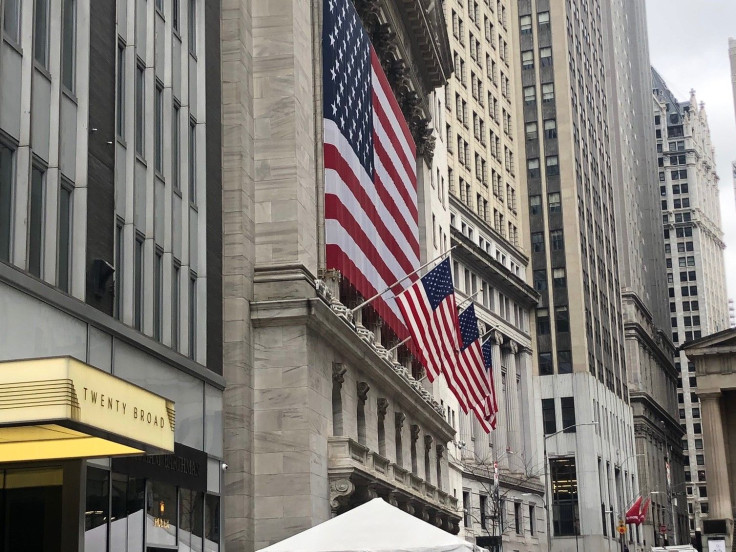Thursday’s Stock Market Open: US Equities Fall On Rising Covid-19 Cases, Stubbornly High Initial Jobless Claims

KEY POINTS
- Initial jobless claims totaled 1.48 million last week, higher than expected
- It marked the 14th straight week that such filings remained above 1 million
- Durable goods orders increased by 15.8% on a monthly basis to $194.4 billion in May
Update: 12:05 p.m. EDT:
U.S. stocks turned positive at noon Thursday on strength in bank stocks.
The Dow Jones Industrial Average rose 36.42 points to 25,482.36, while the S&P 500 edged up 2.25 points to 3,052.58 and the Nasdaq Composite Index rose 26.3 points to 9,935.47.
In Europe markets closed higher, as Britain’s FTSE-100 rose 0.38%, while France’s CAC-40 rose 0.97% and Germany’s DAX gained 0.69%.
Original story:
U.S. stocks tumbled on Thursday as traders fretted over reports of new coronavirus infections and another grim jobless claims report.
The Dow Jones Industrial Average dropped 95.53 points to 25,350.41, while the S&P 500 fell 6.43 points to 3,043.90 and the Nasdaq Composite Index slipped 1.69 points to 9,907.48.
Initial jobless claims totaled 1.48 million last week, higher than expected and the 14th straight week that such filings remained above 1 million.
Heather Long of the Washington Post tweeted: “It's highly concerning that 1.5 million people are still filing new jobless claims [three] months into this crisis. That number should be coming down if the job situation was truly improving.”
Durable goods orders increased by 15.8% on a monthly basis to $194.4 billion in May following a decline of 17.7% in April.
The U.S. reported 45,557 new coronavirus cases on Wednesday -- record number for a single day.
California and Florida recorded their biggest daily spikes in virus cases, while Houston, Texas said its intensive care unit beds are now near capacity. New York, New Jersey and Connecticut also ordered visitors from Alabama, Arkansas, Arizona, Florida, North Carolina, South Carolina, Texas and Utah to quarantine for 14 days.
Health officials in the U.K. warned of a possible second wave of covid-19, while Australia recorded its largest increase in cases since April.
“The market really got the shivers over the prospect of a big increase in Covid and maybe starting to see places that were opening up have to close up,” said Margie Patel, portfolio manager at Wells Fargo Asset Management. “We’ve had such a great run from the end of March it’s only inevitable that we should get at least a little step back.”
“The market has been optimistic that the economy is reopening and that life would get somewhat back to normal, but the virus may have other ideas,” said Chris Zaccarelli, chief investment officer at Independent Advisor Alliance. “The market has again gotten caught up in the crossfire of increasing numbers of Covid-19 cases, trade protectionism and politics.”
Overnight in Asia, the Shanghai Composite and Hong Kong’s Hang Seng exchanges were closed for holidays; while Japan’s Nikkei-225 sank 1.22%.
In Europe markets traded higher, as Britain’s FTSE-100 edged up 0.22%, while France’s CAC-40 rose 0.71% and Germany’s DAX gained 0.56%.
Crude oil futures dropped 0.5% at $37.82 per barrel, Brent crude slipped 0.27% at $40.42. Gold futures fell 0.08%.
The euro fell 0.33% at $1.1215 while the pound sterling slipped 0.1% at $1.2409.
© Copyright IBTimes 2025. All rights reserved.





















